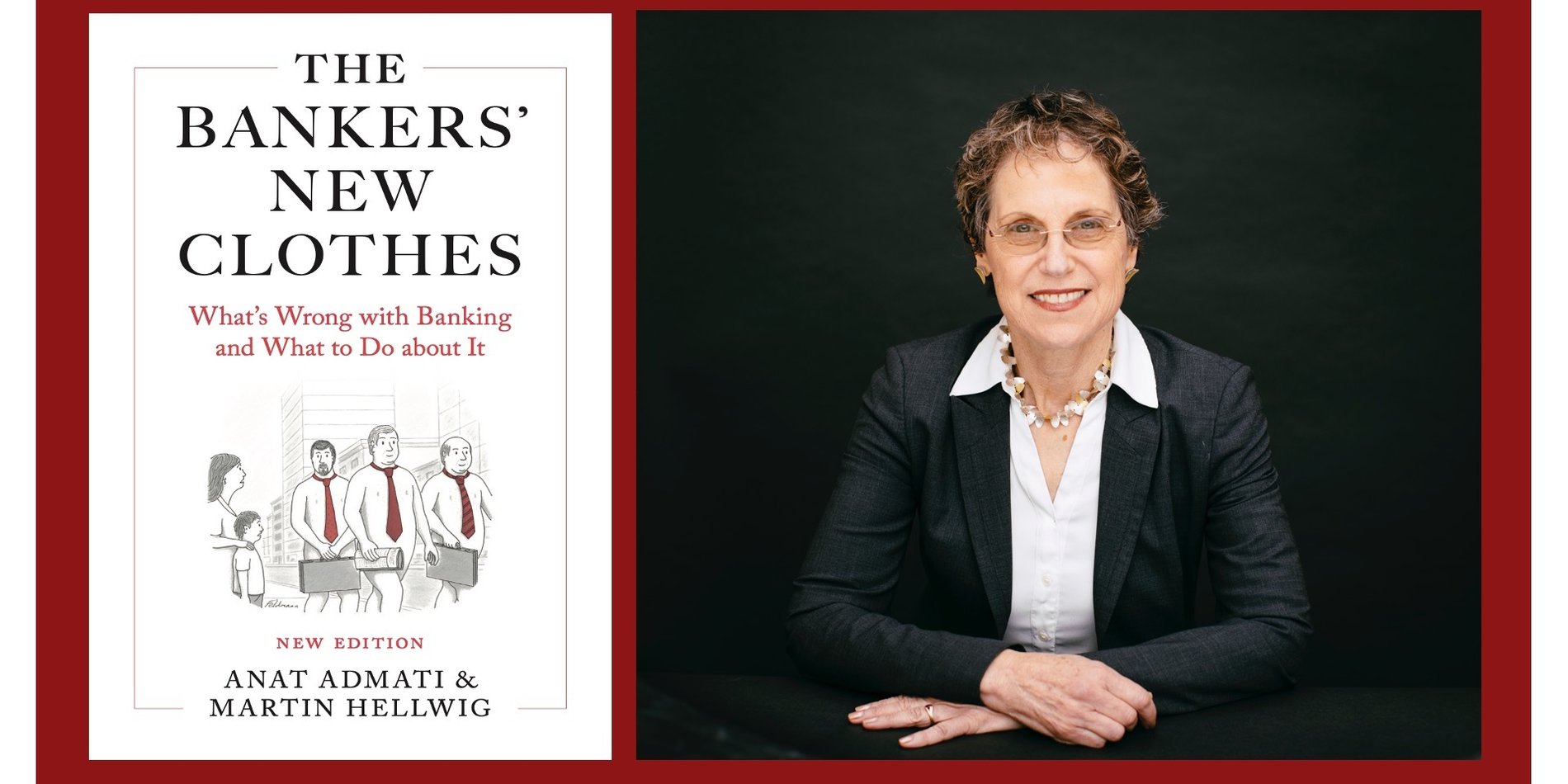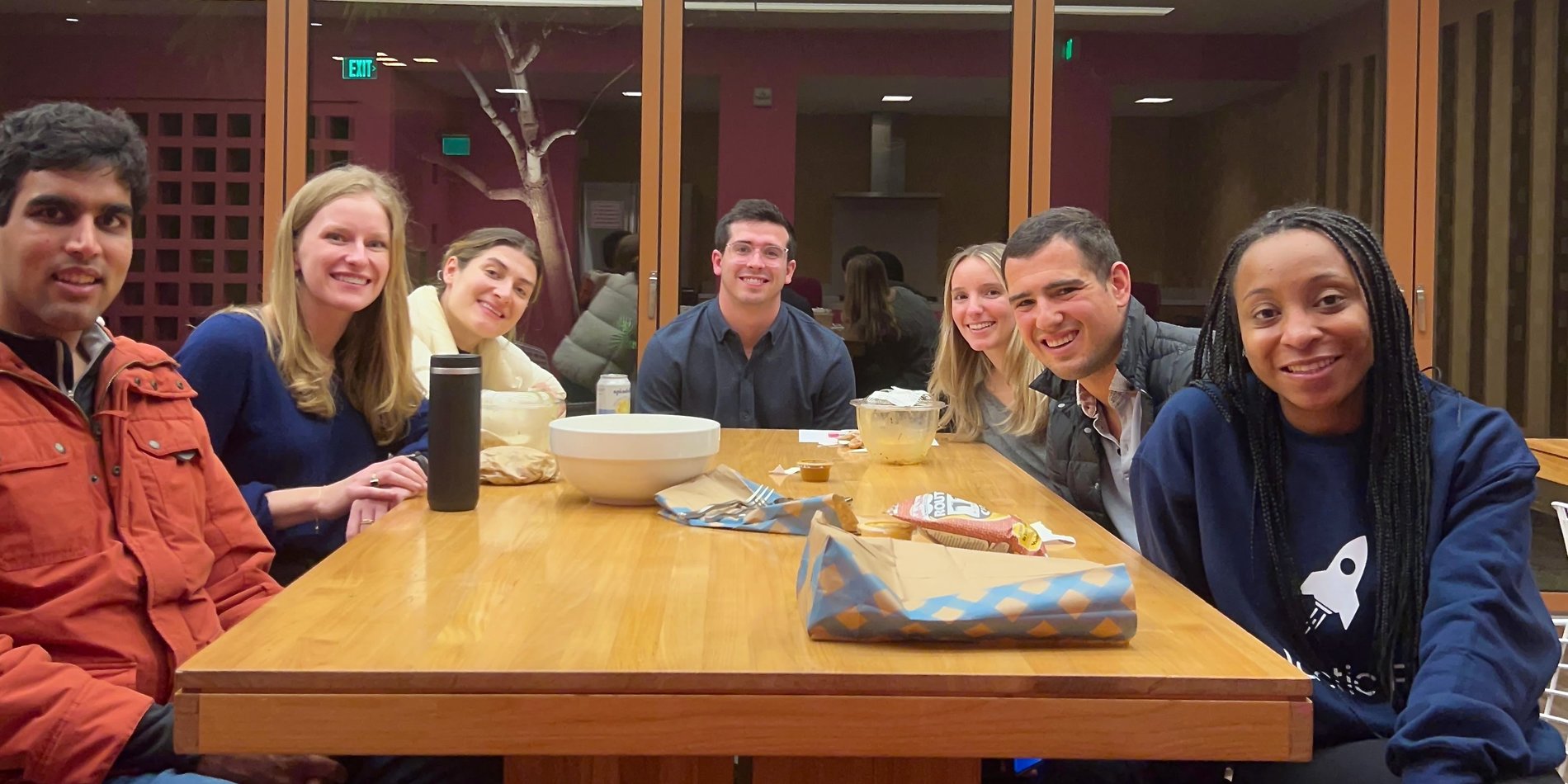Power to Truth: Straight Talk with Luigi Zingales and Anat Admati
Can truth in academia withstand the pressures of "economist capture" and the subtle corruption of knowledge? A candid conversation on the topic unfolded in the latest episode of the web series Power to Truth, hosted by Anat Admati, Faculty Director of the Corporations and Society Initiative (CASI) at Stanford Graduate School of Business with guest Luigi Zingales, a Professor of Finance at the University of Chicago Booth School of Business, faculty director of the Stigler Center for the Economy and the State, and co-host of the podcast Capitalisn't. Admati and Zingales shed light on an issue often shrouded in silence: the distortion of academic research due to vested interests and career incentives.
Admati asked Zingales to share his thoughts on economists’ capture, which is important given the major roles that some economists in academia and government agencies play in influencing policy.
Zingales pointed to a critical deficiency in the field of economics: its failure to examine the field’s knowledge-creation process. This observation led him to draw parallels between regulatory capture—where regulatory bodies are influenced by the industries they regulate—and the academic discipline of economics itself.
“What is particularly ironic is that we economists, who are at the forefront of looking at incentives in other professions, don't look at our own.”
Zingales pointed out that the same incentive structures that influence regulators and professionals in other fields also sway academic economists, albeit with the twist of tenure. The job security that comes with tenure, however, doesn’t necessarily prevent the influence of career-related incentives or the political issues around data control. He highlighted the stark reality of data monopolization, where access and publication rights can severely limit academic freedom and integrity, drawing parallels with practices in the pharmaceutical industry as a noteworthy example.
“I recently learned that with many of the clinical studies in the pharmaceutical industry, the financier owns the data, and so the academics can only publish if the industry wants to. This means surprise, surprise, that if the drug has a positive effect, you publish the data. If the drug does not have a positive effect, you don’t punish them. That's terrible. So that's the most extreme form.
Zingales suggested that every data deal with a university should have a condition that no one with vested interests can review the results. “It cannot be subject to review by results”. However, he was quick to express an inconvenient truth.
“If you want to continue working with a data provider, you cannot find something that is too embarrassing.”
The conversation shifted to the dynamics between academic research, policymaking, and media influence, with Admati warning about the erosion of trust due to self-censorship and skewed expert testimonies. Zingales underscored the importance of questioning data sources and their motives.
“Every source has an agenda,” he stated. “That doesn't mean that the information the source gives you is wrong. It might be, but it is not guaranteed to be wrong.”
“The bigger question is why did they give you the data? And under what conditions?”
Zingales suggested that when presented with a data source, academics should critically examine whether it's possible to uncover important truths that doesn't cater to these underlying agendas.
Admati took the opportunity to mention a growing field of research that she’d recently learned about called agnotology, which is the study of induced ignorance, particularly the publication of inaccurate or misleading scientific data or the obstruction of some facts.
Zingales expanded on the idea, emphasizing the critical need for awareness of such biases when reviewing evidence. He illustrated his point with the example of social media's impact on polarization.
“Most of the research done with data is done with data from Facebook. So, at the very minimum, you should ask yourself the question: is this an objective view of the literature? There is certainly some research that is not being conducted because Meta did not want it to take place.”
Admati agreed adding, “They and others were taking action against anyone trying to scrape data. There's been clear evidence that they don't want unfiltered data to be used.”
This issue is critical, she noted because understanding the impact of social media algorithms on democratic processes requires more than a cursory glance at the algorithms. Admati recounted a Meta employee who advocated for greater transparency, suggesting that Meta should be required to publish detailed statistics on user engagement with posts to enable a deeper analysis of information dissemination.
Zingales proposed the establishment of a data agency as a pivotal solution. He drew a parallel with the finance sector's transformation following the creation of CRSP (Center for Research in Security Prices) at the University of Chicago in the late 1960s. Before CRSP, researchers depended on brokers for data on security prices, which significantly limited the scope of academic studies and the development of theories like market efficiency.
“The moment this data set was created, theories about efficient markets, and the fact that brokers were basically useless, started to emerge. And before [CRSP], there was no theory like this. Why? Because you couldn't get the data.”
Both Admati and Zingales addressed the challenges in reliably interpreting available data for policymaking. They stressed the importance of theoretical understanding to prevent manipulation. Zingales shared insights from a research project he undertook with colleagues at Booth[AA1] . They investigated how transparency around conflicts of interest affects the level of trust people have in the outcomes presented. He also noted that conflicts are perceived differently across different fields. For example, in mathematics, a mathematician's political beliefs do not generally affect the credibility of their mathematical principles.
“In economics, especially in empirical work, there is a lot that goes on in the sausage making,” he said, referring to the behind-the-scenes complexities of research that can be subject to manipulation and biases, significantly impacting the perceived integrity of the research.
Zingales said he always thought medical research was the gold standard with the use of randomized trials, but he now recognizes the subtle manipulations that can occur in that area as well. He emphasized the importance of scrutinizing the research process in all academic specialties to safeguard against the influences that could distort findings and mislead both policymakers and the public.
Admati shared a telling example from Stanford, where a medical journal editor stumbled upon significant side effects from a medical device that were conveniently omitted from published studies. She explained how the case illustrates a deliberate manipulation of data, where results were presented in a way that masked adverse outcomes, keeping critical information from the public. It also underscores the challenge for those outside the field to grasp the full implications of scientific findings.
“On these issues,” she said, “it’s hard to get at the truth.”
Luigi Zingales pointed to the inherent biases that can influence scientific research, drawing an analogy to the partiality a parent has for their children. He notes that such biases are not limited to personal relationships but extend into the professional world, particularly when academia intersects with the private sector.
“There are a lot of benefits from it [academia’s involvement in the private sector]. But there are also costs, and we need to be aware of the cost because if I am involved with a lot of drug development and I'm asked by the FDA to review a drug, I'm going to be more sympathetic if I have a lot at stake.”
Similar considerations arise in research in finance. “If I study private equity, and I always get a result in one direction,” he said, “I think the consistency of results across studies of the same author is a bit strange.” He suggested that true research should mirror reality, where outcomes can vary and sometimes contradict established beliefs.
Both Admati and Zingales expressed concern over the erosion of trust in academic expertise, emphasizing the importance of skepticism without descending into cynicism. They advocated for academics to apply critical self-reflection, acknowledging their own susceptibilities to biases and incentives. This introspection is crucial, they argued, for maintaining the integrity of academic work and ensuring it serves the public interest rather than reinforcing personal biases or external agendas.
“I still love this business,” Zingales told Admati. “I think that it is the best I could possibly do with my life, so I'm not regretting it. There are an enormous number of smart people doing a lot of interesting work.”
“I think that what we need is to first of all, eat a little bit of our own medicine because we think that others can be distorted by incentives, but economists can be too, particularly so.”
Admati and Zingales highlighted the often-overlooked importance of tenure as a foundation for academic freedom. Admati emphasized the need for scholars to critically evaluate their motivations and suggested that the freedom tenure affords both allows and should compel academics to pursue truth unencumbered by external pressures.
Zingales echoed this sentiment, arguing that the privilege of tenure is justified by the ability it gives academics to challenge prevailing narratives without fear of reprisal.
“I think that if we don't use it, we deserve to lose it.”
The conversation concluded with a call for academics to embrace their unique position, and responsibility. Their discussion was a reminder of the critical role of academia in fostering a more informed society through bold inquiry and open discourse.



